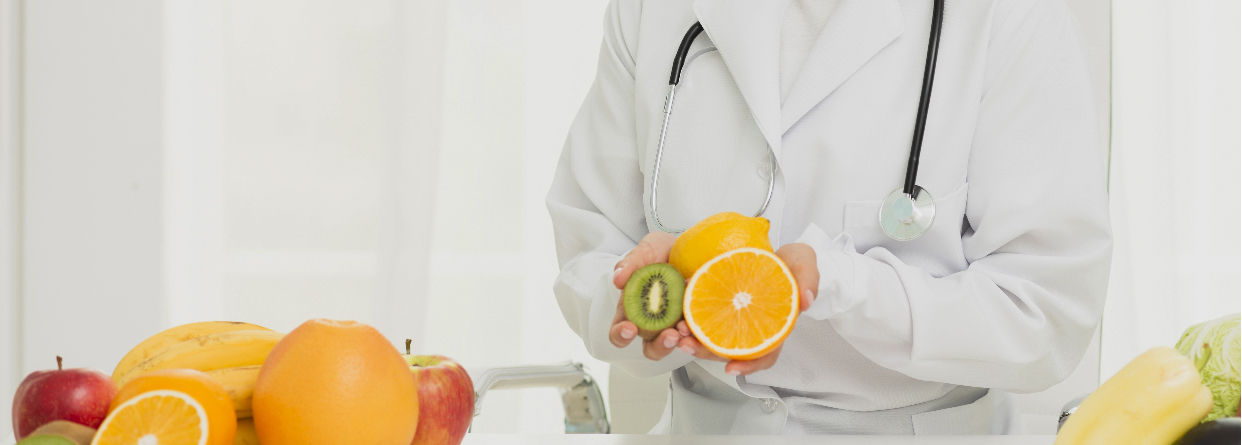Posted on : 21/07/2022 Views : 23439
Kidney Stones And Your Diet
Nutritional habits play a significant role in the genesis and recurrence of kidney stone disease. So, a healthy and wholesome diet has become a fundamental tool for the effective management of kidney stones. There is no single diet plan for kidney stones, as they are formed due to several different minerals in the body. Dietary guidelines aim at reducing the majority of stone-forming risk factors. Current guidelines that are recommended to patients suffering from kidney stones include - increasing fluid intake, reducing the supersaturation of urine, maintaining balanced calcium intake, reducing dietary intake of sodium and animal proteins, and increasing intake of fruits and fibers. Making small diet changes in your current diet and exercising may help in preventing stone formation.
GENERAL GUIDELINES:
1. Stay Hydrated:
● Water helps to dilute the chemicals that can accumulate to form stones
● Drink plenty of liquids.
2. Increase your Citrus intake:
● Citrus fruits and their juices help to block the formation of stones due to naturally occurring citrate.
● Try to drink fresh lemon juice every day. (without added salt and sugar).
● Eat orange, grapes, and mosambi.
3. Get enough calcium every day (adult 1000 to 1200mg/day)
● If your calcium intake is low, oxalates levels may rise, so it is preferable to get enough calcium through food
● Consume foods like milk, curds, yogurt, cottage cheese, and dark green leafy vegetables on.
● Pair calcium and oxalate-rich foods together so that the oxalates can bind themselves to calcium before it reaches the kidneys. (ex: mix nuts or berries with yogurt)
4. Increase consumption of
● Cucumber, broccoli, watermelons, banana, papaya, apple, pomegranate, carrot, pumpkin, kidney beans, tender coconut water, buttermilk, etc, which make the urine less acidic.
What to avoid or limit??
1. Limit salt intake
Consumption of a diet that is high in sodium causes you to lose more calcium in your urine. Avoid adding extra salt to your food and be aware of hidden salt present in processed foods, packed foods, fast foods, ketchup, soy sauce, noodles, pizzas, salted nuts, salted chips, Ajinomoto, pickles, etc.
2. Limit oxalate-rich foods
People who are susceptible to kidney stone formation should limit oxalate-rich foods like Spinach, beetroots, dark chocolates, soya products, amaranth, coca, almonds, cashew nuts, gingelly seeds, poppy seeds, wheat bran, oatmeal, horse gram, sweet potatoes, and raspberries.
3. Lower your animal protein intake
Foods such as meat, fish, and organ meats (liver, kidney) increase the amount of uric acid production. Hence you need to limit their intake. You can instead opt for plant-based protein like pulses, dals, milk, lentils, etc.
4. Avoid carbonated drinks:
They are high in phosphate and other chemicals that may promote the formation of kidney stones, hence avoid drinking them.
5. Limit sugary sweets:
Sweets that contain High Fructose Corn Syrup (HFCS) may cause kidney stones, so limit them
6. Limit alcohol:
Limit alcohol consumption as it can cause dehydration that promotes kidney stone formation
7. Avoid excess intake of vitamin - C, and calcium in supplement form.
Home remedies that may help you when you have kidney stones.
● Water, tender coconut water, and thin buttermilk.
● Lemon juice (avoid adding salt and sugar.)
● Apple Cider Vinegar (ACV) which contains mother culture (Take 2 tsp ACV and dilute it with 250 ml warm water, consume it one hour before your lunch and dinner).
● Basil leaf juice: Boil 5 to 6 leaves in 300ml water for 10 minutes, strain, and sip the water.
● Pomegranate juice: Packed with antioxidants, try taking it at least 3 times a week.
● Celery juice: 2 times a week
NOTE: All these home remedies help if kidney stones are very small in size and they may not work for all patients. Make sure to get yourself evaluated by your doctor

 (+91) 7022316664
(+91) 7022316664  Emergency: (+91) 80 4566 6616
Emergency: (+91) 80 4566 6616 





